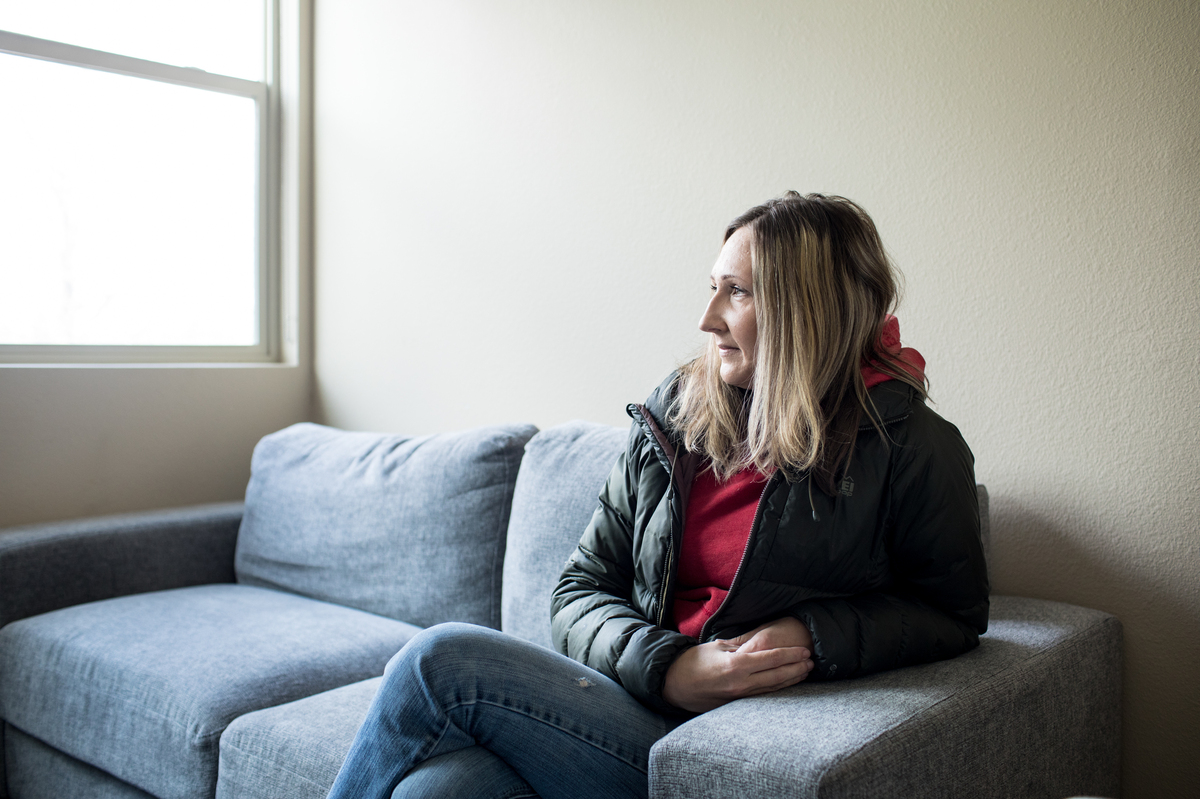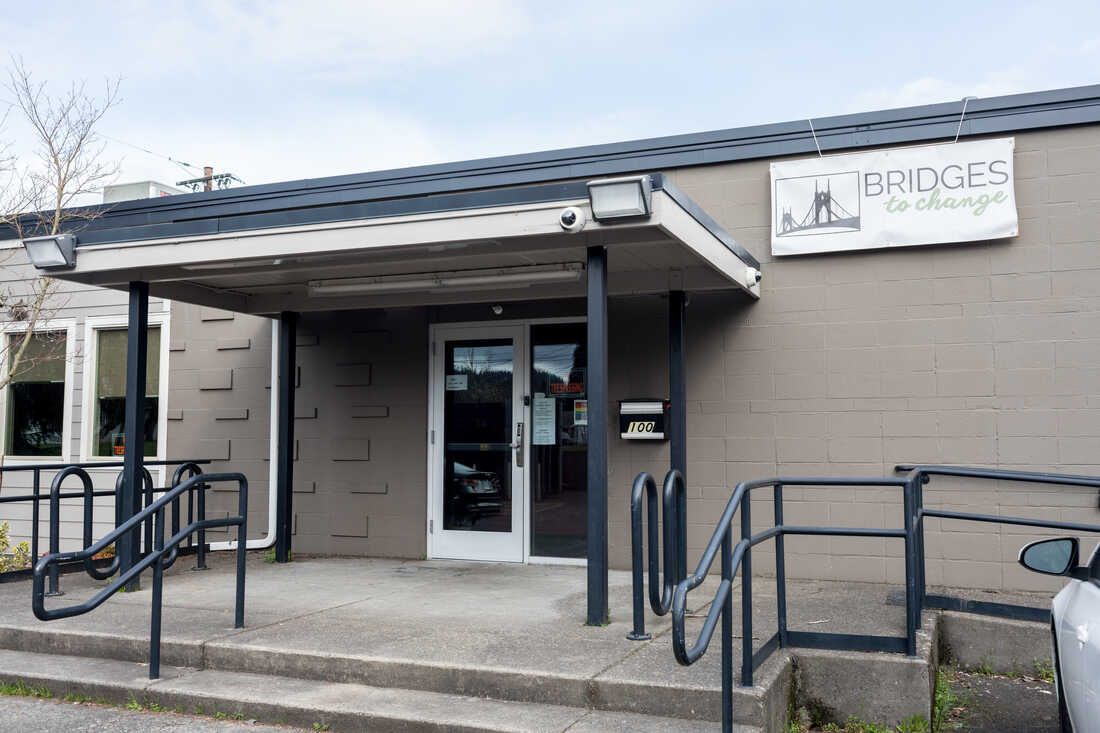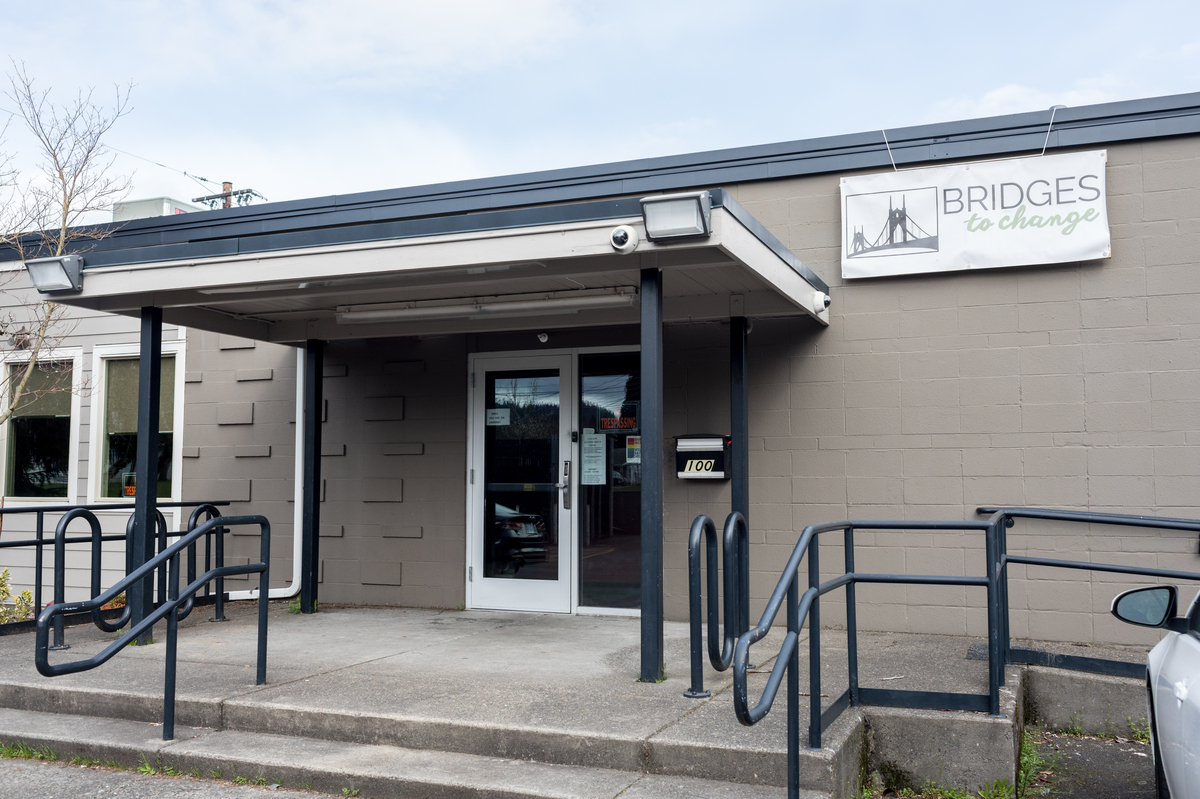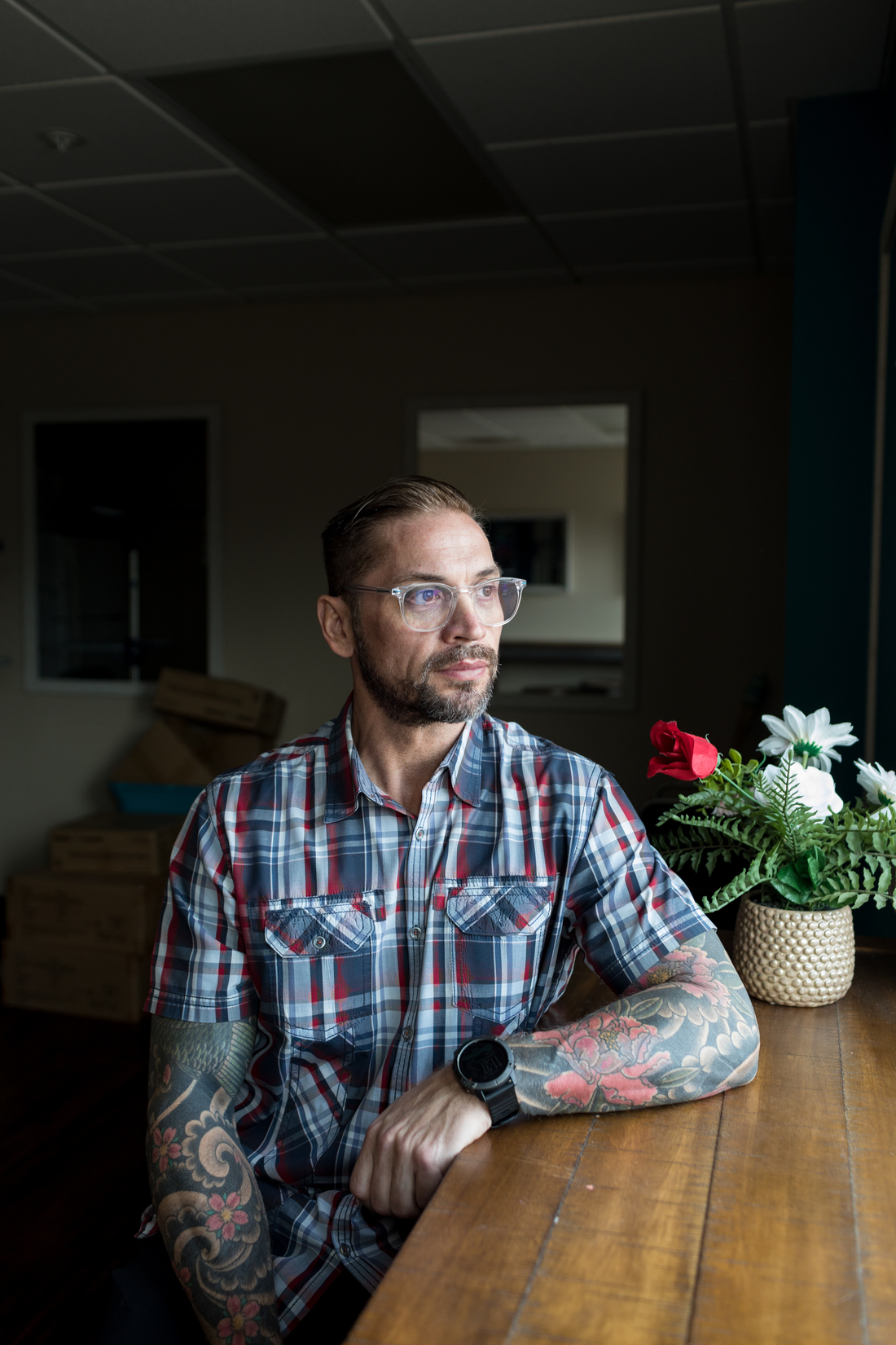[ad_1]

Staci Cowan has been a certified recovery mentor at Bridges to Change for the past three years, and most recently worked at their drop-in center called Club Hope. Celeste Noche for NPR hide caption
toggle subtitle
Celeste Night for NPR

Staci Cowan has been a certified recovery mentor at Bridges to Change for the past three years, and most recently worked at their drop-in center called Club Hope.
Celeste Night for NPR
Like many people working in the addiction field, Staci Cowan is herself in recovery. He started using heroin years ago after starting to take opioids for an injury. The loss of his job and his apartment followed. He found himself homeless when his mother was forced to draw a firm boundary. No more sleeping at home.
“The people on the streets, you think they’re there for you,” Cowan says. “But you quickly realize there’s no one there for you but yourself.”
Now, as a peer mentor at an addiction and recovery center called Club Hope in the Portland suburb of Gresham, Cowan’s job is to be there for other people. He recently celebrated four years in recovery. Listening to people is a big part of his job. She remembers what it was like to feel invisible.
Oregon has recently funded positions for dozens more of these types of jobs at facilities across the state, and many more jobs are on the way. It’s part of the state’s new approach to addressing substance abuse.
In 2020, Oregon voters approved a measure to decriminalize possession of small amounts of drugs like heroin and cocaine, while channeling hundreds of millions of dollars from a recreational marijuana tax to help people to fight addiction. The idea is to address substance abuse through public health channels instead of the criminal justice system.
Now, the problem is finding the manpower to staff this effort.

Club Hope in Gresham, Oregon, is part of an organization called Bridges to Change, which provides pathways out of addiction. Celeste Noche for NPR hide caption
toggle subtitle
Celeste Night for NPR

Club Hope in Gresham, Oregon, is part of an organization called Bridges to Change, which provides pathways out of addiction.
Celeste Night for NPR
Emotional labor has an emotional cost
“Passion is driving people into the field, and the other side of that coin is that it’s a very emotionally draining position,” says Monta Knudson, executive director of Bridges to Change. Club Hope is a facility managed by the organization. Knudson himself is on the mend. He says the emotional labor risks of both participating in and contributing to this work are high. They often lose customers to the street. Some die.

“You feel like, ‘Have I done enough?'” says Knudson. “There are all kinds of ways your mind plays tricks on you. And also just the sadness of losing people to a treatable disease.”
Recent money has made some difference. It allows many people in the Hope Club to earn over twenty dollars an hour, collected from the age of sixteen. But it’s still hard to find people for those jobs and keep them from burning out, Knudson says.

Monta Knudson is Executive Director of Bridges to Change. Celeste Noche for NPR hide caption
toggle subtitle
Celeste Night for NPR
The recovery workforce will have to expand in the coming years
These staffing challenges are instructive for states across the country, as the US will soon make a unique investment in the field of addiction recovery. Settlements with drug companies over their role in the opioid addiction crisis will soon make billions available to fund recovery and treatment.

But in Oregon, thirty percent of current jobs in the addiction and recovery workforce are not filled. That’s according to a survey by the Oregon Council for Behavioral Health. “It’s the biggest labor crisis I’ve seen in my 25-year career,” says Heather Jefferis, the organization’s executive director.

The Bridges to Change Employee Handbook. Celeste Noche for NPR hide caption
toggle subtitle
Celeste Night for NPR

The Bridges to Change Employee Handbook.
Celeste Night for NPR
This shortage, he says, has a direct impact on care.
On a recent morning at Club Hope, mentor Staci Cowan hands a man a towel and points him to the shower. People can come here to swim, eat, or just watch Netflix and warm up. They can also access social services. The idea is to allow people a way out of addiction.
But that model doesn’t work without mentors like Cowan, who offer not only resources but empathy.

This morning he talks to a man who has just had a breakthrough; he moves from the street to his own apartment. He is nervous and worried that it won’t work. “You have to change your thinking,” Cowan tells him. “Don’t even think about what happens next if this doesn’t work.”
It’s a brief exchange, but it’s these kinds of interactions that provide crucial emotional support to people in recovery. The first days are the hardest.

Dawn Marks is the program supervisor at Club Hope, a recovery center that supports people struggling with addiction. Celeste Noche for NPR hide caption
toggle subtitle
Celeste Night for NPR
These are the early days of this recovery funding experiment
Oregon’s program is still in its infancy. In its first year, an initial investment of $30 million has enabled an additional 16,000 people to receive addiction services. Hundreds of millions of dollars are still to come. Advocates are working to further increase pay for critical peer mentor positions, as well as make training programs more available.

Meanwhile, Bridges to Change Executive Director Monta Knudson says his staff is doing everything they can to take care of their own mental health.
Knudson says it would be unrealistic to expect this job to not have a high emotional toll. “I’ve never seen anyone who isn’t tied up in some way,” he says. Caring is work, he says. With care comes heartache.
[ad_2]Source: Addiction recovery has money but not enough workers in Oregon: NPR
Methadone Clinics Nearby – Methadone Clinics New York – Methadone Clinics USA















